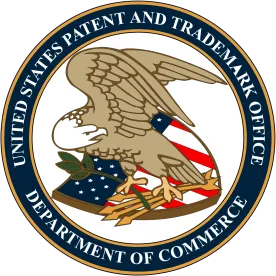To mitigate potential conflicts of interest and to improve the public’s understanding of the United States Patent and Trademark Office (USPTO) procedures, the agency has recently made various amendments to its rules relating to the conduct of registered patent attorneys and agents. The resulting changes mirror some well-recognized provisions of the American Bar Association’s (ABA) Rules of Professional Conduct. The changes also make the agency’s procedures easier to comprehend, as discussed below.
Contrary to most legal practice, representing inventors to secure a patent does not require a licensed attorney. “Patent agents” can also represent inventors when seeking a patent from the USPTO. A patent agent is typically a college-educated non-lawyer with an engineering or other technical degree who has taken the USPTO’s “patent bar” exam. On this exam, applicants are tested on laws and rules that address patentability issues and inventor obligations. (A patent attorney must also have technical credentials and take the patent bar exam, in addition to having a law degree and passing a state bar examination.).
Patent agents can be an attractive option to inventors, corporations, and law firms as their salaries and, thus, their billing rates can be significantly lower than that of a patent attorney. However, because patent agents are not attorneys, they are not bound by the ABA’s Model Rules of Professional Conduct or any of its variations adopted in most of the country. The USPTO has its own set of Rules of Professional Conduct (37 C.F.R. § 11), and registered practitioners (patent agents and patent attorneys) are required to abide by them. Yet here were some deficiencies in mitigating potential conflicts of interest.
To address these deficiencies, the USPTO took a page right out of the ABA’s Rules of Professional Responsibility. Under the changes that take effect on June 25th, patent practitioners will now be required to disclose client information to resolve potential conflicts of interest that result from ownership changes within a law firm or changes in a practitioner’s employment. Also like the ABA’s Model Rules, the USPTO will require practitioners to take reasonable steps to prevent improper disclosure involving the representation of a client. These changes will help make practitioners’ activities at the USPTO more transparent, permitting identification of potential conflicts while also protecting client confidentialities.
Although many changes adopted by the USPTO were substantive, over ten sections were amended only to increase the clarity of the rules. The USPTO hopes this will lead to more compliance by the public, and it is a welcomed change because many of the USPTO’s rules are known to be difficult to grasp, especially by non-practitioners. As many patent applicants do not have the resources to obtain representation, these changes could help many inventors reap the benefits of IP protection and not lose patent rights due to a misunderstanding of the requirements.
The USPTO also created a new provision, which enables it to terminate an individual’s registration based on misrepresentation and other types of undesired behavior. This severe penalty will help ensure good faith and honest practice before the USPTO.
Lastly, while not related to the ABA model rules, the USPTO now allows a time extension to individuals scheduled to take the patent bar exam. In the past, if a prospective examinee could not sit for the exam within the allotted ninety-day window, the applicant would have to submit a new application for approval. With the new rules, an applicant can secure an extension by simply paying an extension fee of $115, which represents a significant reduction in costs.
The USPTO’s decision to adopt ABA rules is not novel — the agency began this trend in 2013. Since most patent attorneys already adhere to some variation of the ABA’s Rules of Professional Conduct, these changes are expected to be well-received by attorneys and agents alike. Nonetheless, patent agents and attorneys may need to modify their practice to comply with these new provisions. Most of the changes help streamline patent prosecution and promote a conflict-free practice, which is an outcome that benefits inventors, patent owners, the USPTO, and the general public.



 />i
/>i
